Table of Contents
- Why Are Cybersecurity Certifications Important?
- 1. Proof of Expertise
- 2. Staying Relevant
- 3. Lucrative Job Opportunities
- 4. Global Recognition
- 5. Employer Requirements
- What Is a Cybersecurity Certification Chart?
- Popular Cybersecurity Certifications
- Benefits of Using a Cybersecurity Certification Chart
- How to Choose the Right Cybersecurity Certification
- Final Thoughts
- FAQ Section
In today’s digital age, cybersecurity certifications have become more important than ever. With cyber threats becoming increasingly sophisticated and frequent, businesses and governments are investing billions into securing their digital assets. The need for skilled cybersecurity professionals continues to grow, with companies around the world recognizing the importance of securing critical infrastructure, sensitive data, and networks. However, the wide variety of cybersecurity certifications can be overwhelming for those interested in entering or advancing in the field.
A cybersecurity certification chart serves as a roadmap to guide individuals through the different certification options, helping them choose the best path to achieve their career goals. Guide to Cybersecurity Certification Pathway provides a structured approach to understanding various certifications, making it easier to select the right one. This chart provides valuable insights to help you navigate the cybersecurity landscape and make informed decisions by comparing certifications based on factors like difficulty, specialization, cost, and recognition.
Why Are Cybersecurity Certifications Important?
Cybersecurity certifications are more than just a set of letters after your name; they’re essential for career growth and professional recognition. Here’s why these certifications matter:
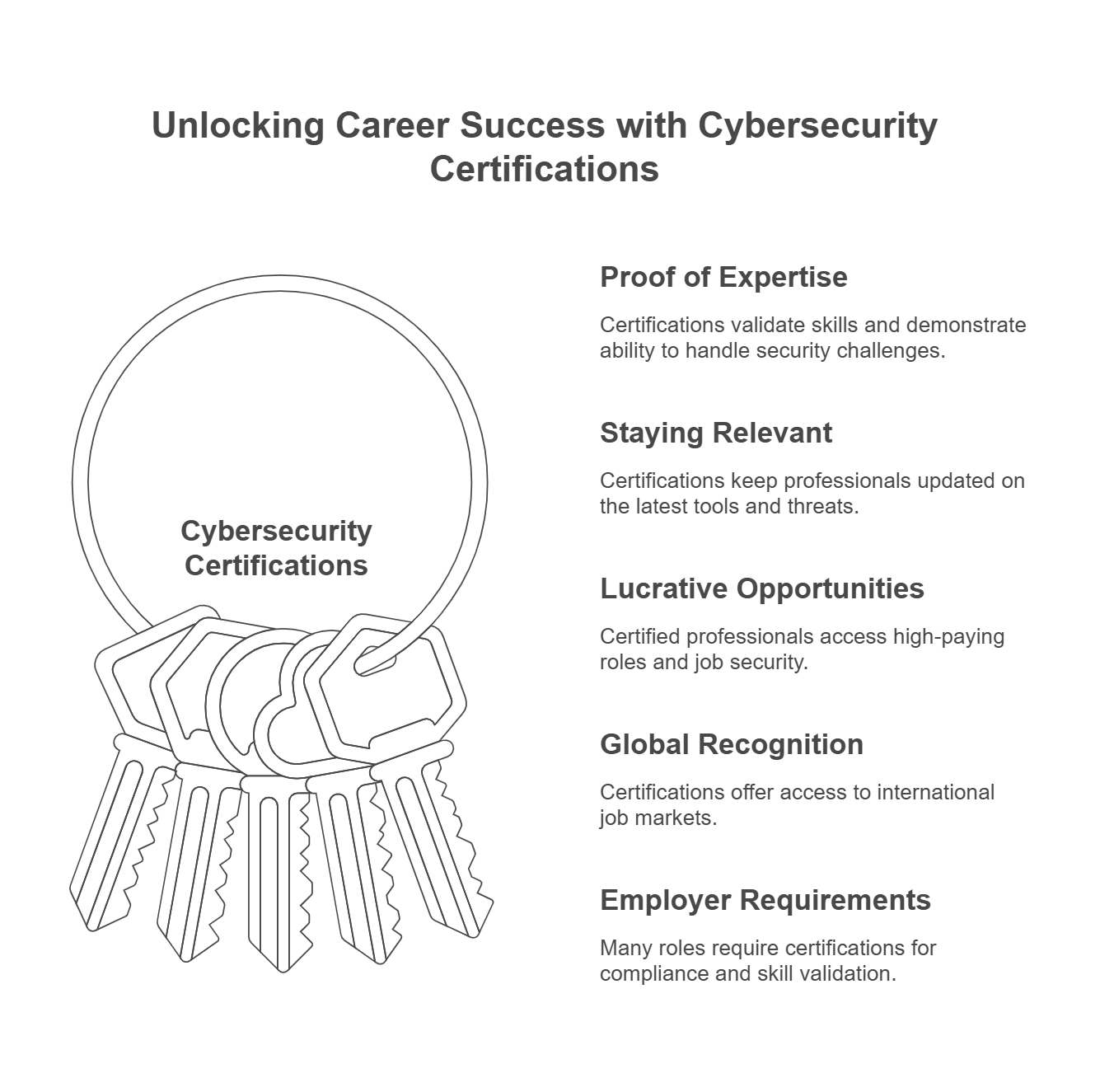
1. Proof of Expertise
In the cybersecurity field, having the right skills is critical. Certifications validate your knowledge and demonstrate your ability to handle specific security challenges, whether that’s network vulnerabilities, incident response, or advanced threat detection. Programs like the ACSMI certification offer in-depth preparation, helping professionals address the complexities of modern cyber defense.
2. Staying Relevant
Cybersecurity is an ever-evolving field, with new technologies and attack vectors emerging constantly. With the rise of AI, IoT, cryptocurrency, and cloud computing, certifications help you stay updated on the latest tools, techniques, and best practices. They ensure you’re equipped to handle new threats as they emerge, keeping your skills relevant and in-demand.
3. Lucrative Job Opportunities
Having a cybersecurity certification opens the door to a wide range of high-paying roles such as cybersecurity analyst, penetration tester, and Chief Information Security Officer (CISO). In fact, certified professionals tend to earn 15-20% more than their non-certified counterparts. The demand for cybersecurity expertise across industries also means these professionals enjoy job security and growth potential.
4. Global Recognition
Cybersecurity certifications like CISSP, CISM, and ACSMI are recognized globally, offering professionals the ability to work in different countries and access international job markets. In fact, some of these certifications are often required by organizations for certain job roles, making them a crucial asset for your career.
5. Employer Requirements
Many organizations require certain certifications to apply for specific roles, and in some cases, certifications are mandatory for compliance with industry regulations. Employers see these credentials as proof that candidates have the requisite skills to address security concerns and protect organizational assets.
What Is a Cybersecurity Certification Chart?
A cybersecurity certification chart is a visual tool that compares and contrasts various certifications, helping you map out your certification journey based on factors like:
-
Difficulty level
-
Cost
-
Specialization (e.g., ethical hacking, cloud security)
-
Global recognition and employer demand
The chart allows you to identify the most relevant certifications based on your current expertise and career goals. For example, if you’re a beginner in cybersecurity wondering Cybersecurity Certification Should I Get First, a foundational certification like CompTIA Security+ might be the right choice, while a more advanced professional might aim for certifications like CISSP or ACSMI’s comprehensive certification program, which offers over 400 modules.
By leveraging a cybersecurity certification chart, professionals can take the guesswork out of their career development and focus on the certifications that will help them succeed.
Popular Cybersecurity Certifications
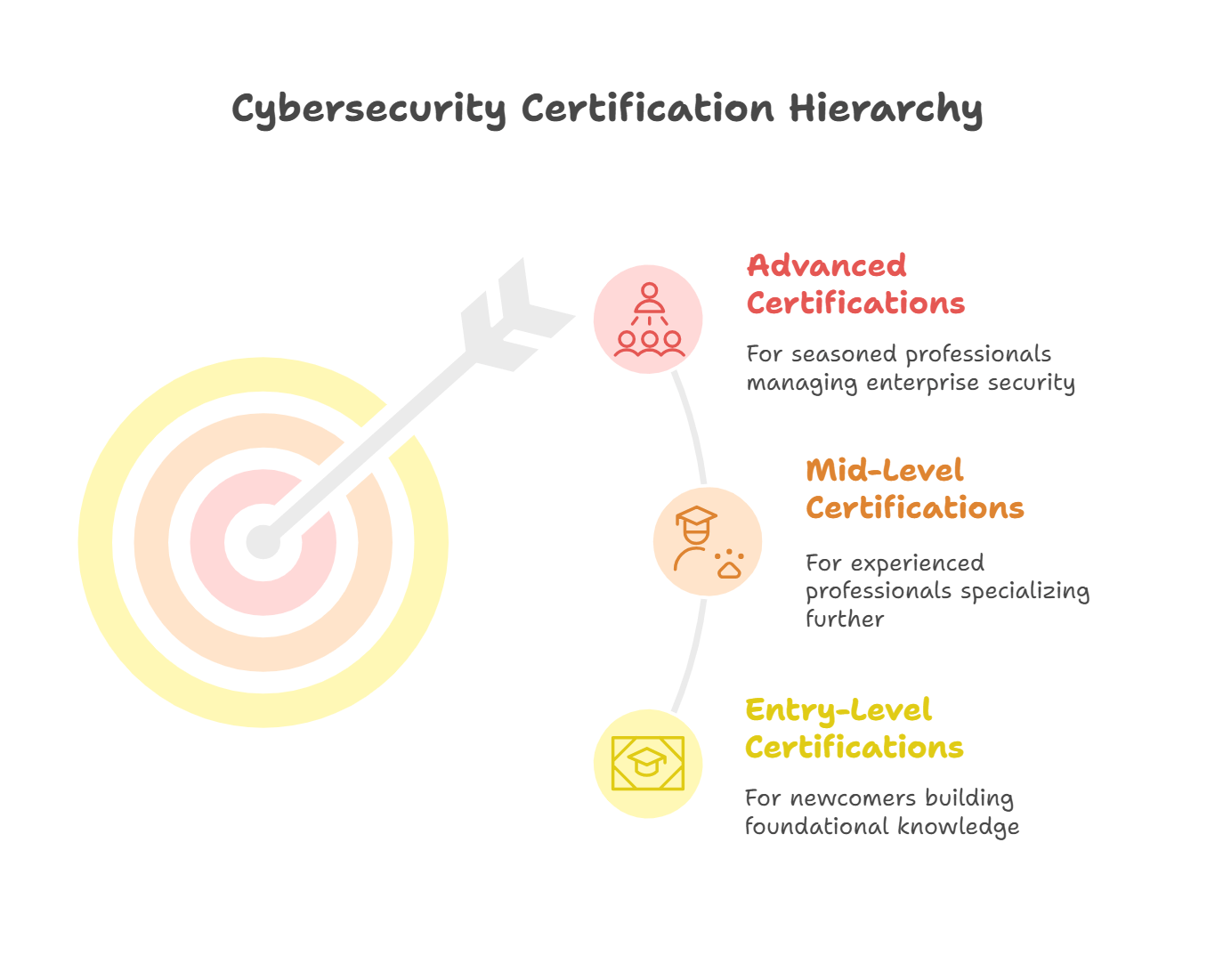
1. Entry-Level Certifications
For those new to cybersecurity, entry-level certifications provide the foundational knowledge needed to build a solid career. These certifications cover essential topics such as risk management, network security, and system vulnerabilities. Popular entry-level certifications include:
-
CompTIA Security+: Offers basic knowledge of cybersecurity principles, including risk management, encryption, and network security.
-
EC-Council Certified Secure Computer User (CSCU): Ideal for individuals interested in understanding everyday cybersecurity practices.
-
GIAC Security Essentials (GSEC): This certification covers the essentials of cybersecurity, including basic security principles and network protection techniques.
2. Mid-Level Certifications
Mid-level certifications are designed for professionals who have some experience in cybersecurity and want to specialize further. These certifications focus on skills like penetration testing, compliance frameworks, and advanced network security:
-
Certified Ethical Hacker (CEH): Specializes in ethical hacking and penetration testing, teaching professionals how to identify vulnerabilities in systems.
-
ISO 27001 Lead Implementer: Focuses on information security management and implementing ISO standards for managing cybersecurity.
-
Certified Cloud Security Professional (CCSP): A cloud-specific certification that focuses on securing cloud environments and managing cloud risks.
3. Advanced Certifications
Advanced certifications are designed for seasoned professionals who are responsible for enterprise-wide cybersecurity strategies. These certifications focus on governance, compliance, and advanced security tactics:
-
Certified Information Systems Security Professional (CISSP): A globally recognized certification that covers a wide range of security topics and is ideal for those looking to move into leadership roles.
-
Certified Information Security Manager (CISM): Specializes in managing and governing enterprise-level security strategies.
-
ACSMI Certification: One of the most comprehensive certifications, with over 400 specialized modules, offering expertise in both technical and strategic areas of cybersecurity.
Benefits of Using a Cybersecurity Certification Chart
A cybersecurity certification chart provides several distinct advantages:
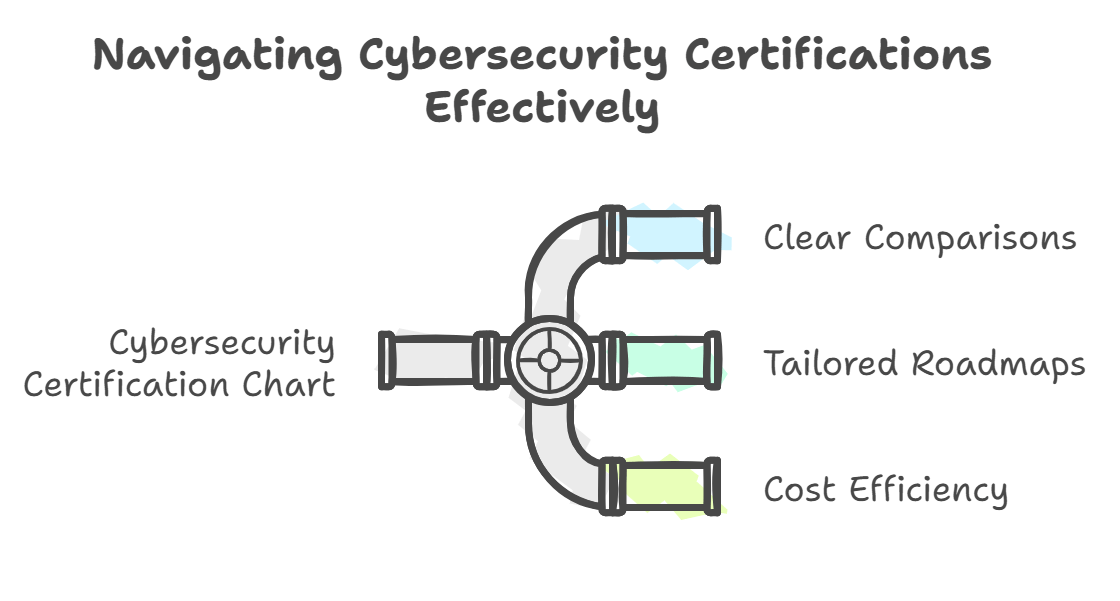
Clear Comparisons
The chart allows you to easily compare certifications by factors such as cost, duration, focus areas, and intended audiences. This clear comparison helps you quickly identify the certifications best suited to your career goals.
Tailored Roadmaps
For professionals with specific interests, such as cloud security or ethical hacking, the chart enables you to identify the certifications that specialize in those areas. Whether you want to focus on compliance, cloud security, or incident response, the chart helps you navigate the many available options.
Cost Efficiency
Cybersecurity certifications can be expensive, so using a certification chart helps you prioritize those that provide the best return on investment (ROI) for your career. Instead of spending money on unnecessary certifications, you can focus on those that will give you the most value.
How to Choose the Right Cybersecurity Certification
Selecting the right certification is essential for aligning your career trajectory with your goals. Here’s how to narrow down your options:
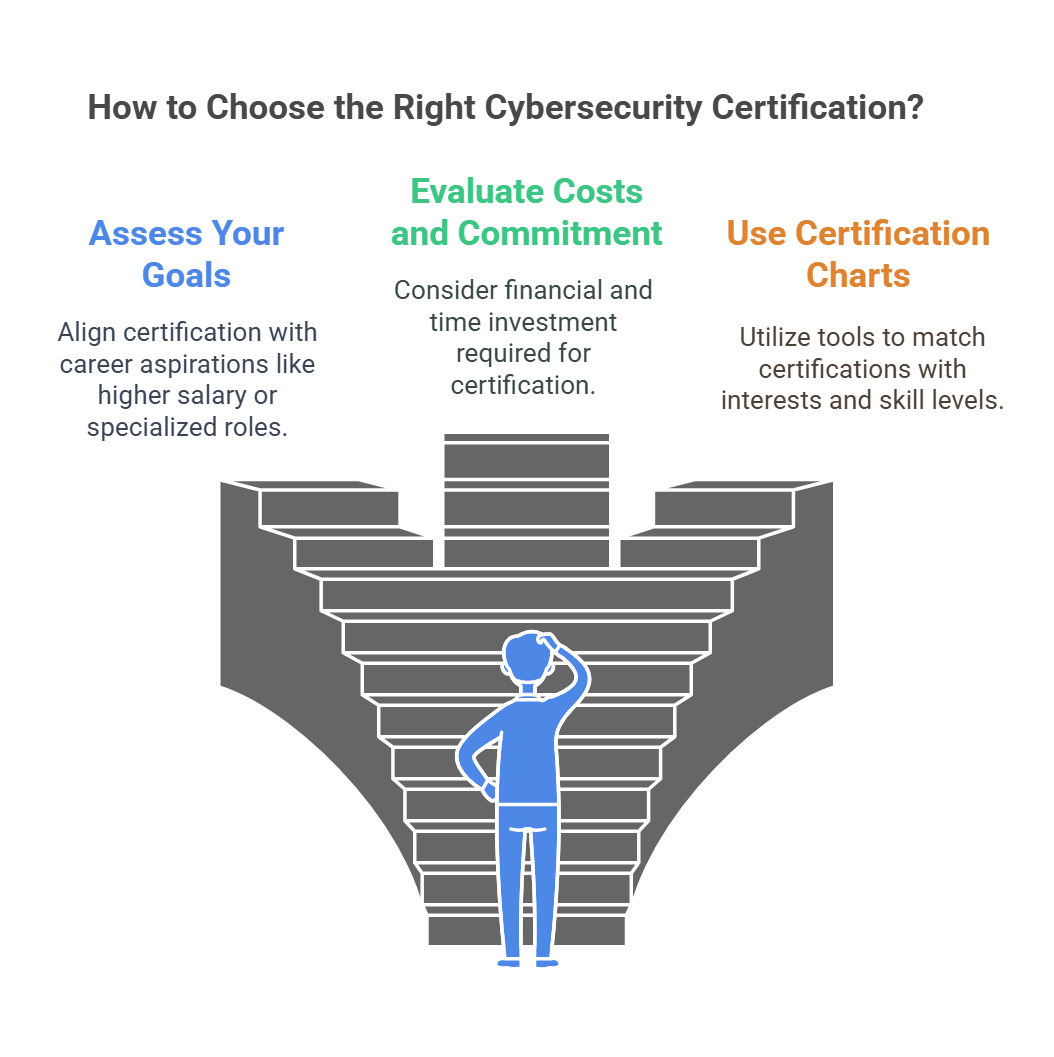
Assess Your Goals
Consider your long-term career aspirations. Are you looking for a higher salary, specialized roles like ethical hacking or cloud security engineering, or leadership positions such as CISO? Choose certifications that align with these goals.
Evaluate Costs and Commitment
Certifications require both time and financial investment. Be prepared for the cost of study materials, exams, and renewal fees. Evaluate your current work-life balance and decide how much time you can devote to studying.
Use Tools Like Certification Charts
Certification charts are an excellent tool to help you evaluate your options and select certifications that match your interests, skill level, and career goals.
Final Thoughts
A career in cybersecurity isn’t just about protecting systems; it’s about safeguarding the very technologies that power our global economy, infrastructure, and personal lives. With the increasing complexity of cyber threats, organizations need skilled professionals to combat these risks, and certifications are essential for proving your expertise.
Using a cybersecurity certification chart can help you map out your learning path, ensuring that you choose the right certifications based on your experience and career aspirations. Whether you’re starting with foundational certifications or aiming for executive-level credentials like ACSMI, the right certifications will help you succeed in the competitive and dynamic world of cybersecurity. With the global demand for cybersecurity professionals continuing to rise, your certifications can be the key to unlocking higher-paying roles, job stability, and career growth.
FAQ Section
What is a cybersecurity certification chart?
A cybersecurity certification chart is a comparison tool that helps professionals evaluate certifications based on various factors, such as difficulty level, cost, and recognition. It helps you choose the certifications that best suit your career goals.
Why are cybersecurity certifications important?
Certifications validate your skills, enhance your resume, and make you competitive in the job market. They demonstrate that you have the expertise to handle modern cybersecurity challenges.
Which certifications are globally recognized?
Certifications like CISSP, CEH, and ACSMI are globally recognized, enabling you to access job markets worldwide.
What is the most advanced cybersecurity certification?
The ACSMI certification, with its 400+ modules, is one of the most advanced certifications, offering a comprehensive focus on both technical expertise and leadership strategies.
How often do certifications require renewal?
Most certifications, such as CISSP and ACSMI, require renewal every 2-3 years. Renewals often involve additional fees or continuing education credits.
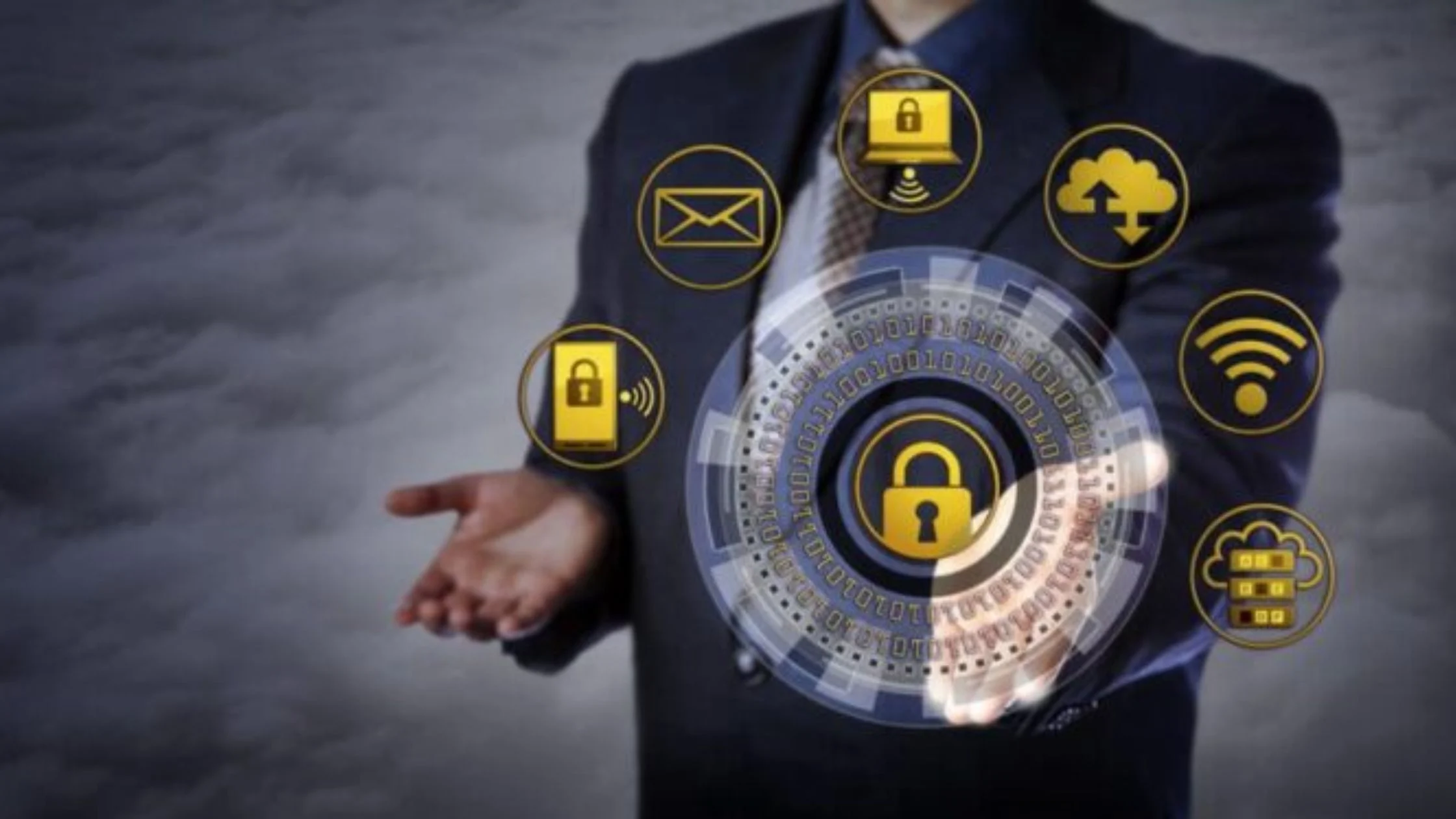
Leave a Reply